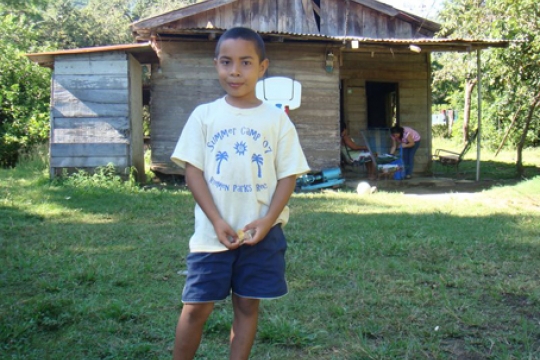EfD researchers show that the Payments for Ecosystem Services program has no positive nor negative effects on people's income or jobs. And in the first three years of its implementation, the program had no effect on the deforestation rate. However, in the following five years, the program did slow down deforestation.
"People expect payments for ecosystem services to improve lives. So, it is important to test if the program does that or not. Our findings show that, in socioeconomic terms, people are not benefitting from this program, for example when it comes to employment, wages or poverty," says EfD researcher Juan Robalino
Together with his EfD colleagues Laura Villalobos, Catalina Sandoval, and Francisco Alpizar, Robalino conducted a household survey that covers the whole country and, based on that, a study of the socioeconomic impact of Payments for Ecosystem Services.
The idea behind Payments for Ecosystem Services is to compensate people who generate services such as leaving a forest untouched, leaving land that is already deforested so that forest can grow again, or planting trees and producing timber in a sustainable way.
"Ideally, people should be better off by providing forest ecosystem services or at least they shouldn’t be worse off. Yet, the latter is what we found," says Robalino.
The original purpose of payments for ecosystem services is to reduce deforestation. Conservation of forests means increased carbon sequestration or, in other words, storage of carbon dioxide in order to avoid dangerous climate change. Other benefits associated with forest conservation are biodiversity protection, watershed protection, and scenic beauty.
Small impact by PES on deforestation, unemployment and wages
However, with this program come restrictions on the use of land for agriculture. This in turn can affect wages and employment for local people. In fact, the EfD researchers show that unemployment increased and wages fell slightly 2007-2009 due to the payments for ecosystem services program, but the impact was very small.
The impact on deforestation is also slight, according to Robalino. Ninety-seven percent of the forest land in Costa Rica enrolled within the program would not have been deforested even without the program during 2000-2005.
"How much carbon the 3 percent of saved forest can capture is very difficult to measure because of the uncertainty about where the land would have been deforested, but this doesn´t mean the program is not worth the efforts. Now we at least know that the program on average doesn´t hurt people," Robalino says.
Yet, the outcomes of the program could improve with better targeting. An important conclusion from another EfD study is that a combination of incentives that includes better targeting of landowners at high risk of deforesting their land needed. Some have argued that fairness considerations might affect efficiency, but this does not seem to be the case. Click to read more
By Karin Backteman
